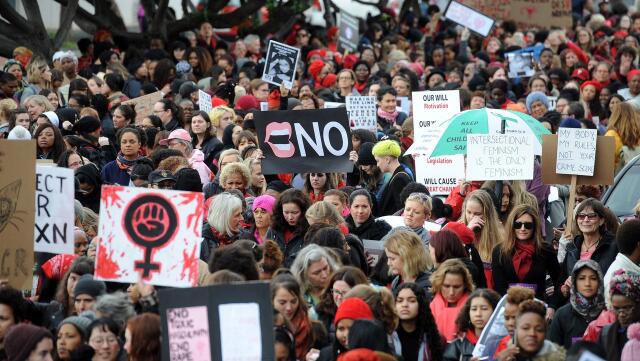OPINION: Women are angry, and that anger must ignite a feminist movement that is based on deeper understanding of how power structures operate, particularly the power of patriarchy, writes Brenda Madumise-Pajibo
By Brenda Madumise-Pajibo
A BAG of mixed emotions engulfed me as I write this article in commemoration of International Women’s day on March 8. I am filled with anger over the callous response to GBV by the SAPS that Wise4Afrika has been dealing with over the past few weeks. I am anxious for the victims of violence and abuse who don’t report crimes against them in fear of reprisal, intimidation, ridicule and not being believed.
Immobilised by the lack of urgency and commitment to eradicating poverty, inequality and unemployment decimating African women, I am stunned by the emergence of sudden funding to combat GBV when these resources have not been made available for the last 25 years in South Africa.
At the same time, I am emboldened by the determination and dedication of African women activists demanding accountability on all fronts and holding the line for those who cannot speak for themselves. I am equally overwhelmed by the number of webinar events planned for celebrating International Women’s Day and how quickly the day ends; then, we will all revert to attending more meetings on CSW65 [the 65th Commission on the Status of Women] and Generation Equality, all the while, still raising the same issues women addressed in the 1900s.
Wise4Afrika recognises that on this day, we stand on the shoulders of those before us. The women in New York who worked in garment factories in the early 1900s protested their working conditions and called for higher wages. During the first World War, women in Russia protested inflation, particularly the price of bread and the war in what is famously called the “Bread and Peace” protest. These efforts resulted in the fall of Czarism in Russia.
Eventually in 1975 the UN officially recognised that women’s rights and gender equality were necessary preconditions for the advancement of society. No doubt women have traversed major minefields and yet women still do not enjoy full equality.
The Covid-19 pandemic has brought into sharp focus the plight of women. The women in the retail and health sector have held it down for all of us at a huge sacrifice to their lives and the lives of their families. In both of these sectors of the economy, women are overrepresented in lower paid positions. Gender pay equity cannot continue to be a slogan for these women. For International Women’s Day to be celebrated with authenticity then, we must swiftly change the system that is designed to hold women back.
Societal inequities faced by women were further captured in the statistics which testified that violence against women had increased and seeking redress was even more diminished. The perpetrators of these inequities were even more emboldened as they were the primary enforcers of the laws and they could care less whether or not women’s rights were respected or upheld.
In our times and in our country, the menfolk continue to believe and behave as though women’s bodies are their possessions. Women continue to be less represented in the highest echelons of our political, judicial and corporate structures. Women are paid less than men for the same work. Worse, women continue to perform no-pay work as caregivers and homemakers.
The fight for equality continues unabated. Women are going to work to improve their representations in all spheres of government. As a majority we will make sure that justice for all under the rule of law is actualised. Women are angry; and that anger must ignite a feminist movement that is based on deeper understanding of how power structures operate; particularly the power of patriarchy.
* Brenda Madumise-Pajibo is director at Wise4Afrika.








